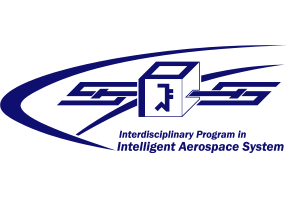Professor

Park, Hyeong Jun
Research Field : Satellite and Satellite Application Field, Space Risk Management Field
Major : Space Flight Dynamics, Robotics, and Systems
Office : 302동 629
Phone : +82-2-880-7383
Website : https://smrl.snu.ac.kr
Email : hyeongjun@snu.ac.kr
Career
- · 1999 ~ 2003 B.S., Mechanical and Aerospace Engineering, Seoul National University, Korea
- · 2003 ROTC Officer Commissioning, 101 ROTC, Seoul National University, Korea
- · 2003 ~ 2005 First Lieutenant, Republic of Korea Marine Corps
- · 2005 ~ 2008 M.S., Mechanical and Aerospace Engineering, Seoul National University, Korea
- · 2009 ~ 2011 M.S.E., Aerospace Engineering, University of Michigan, USA
- · 2011 ~ 2014 Ph.D., Aerospace Engineering, University of Michigan, USA
- · 2015 ~ 2017 Postdoc Fellow, Spacecraft Robotics Lab, Naval Postgraduate School, USA
- · 2018 ~ 2023 Assistant Professor, Mechanical and Aerospace Engineering, New Mexico State University, USA
- · 2023 ~ Assistant Professor, Aerospace Engineering, Seoul National University, Korea
Research Interests
Dr. Hyeongjun Park’s research interests include the innovative development of space systems, mechanisms, and algorithms to support various space exploration missions, including commercial utilization of Earth orbits and missions to the Sun, Moon, Mars, and asteroids. Dr. Park conducts diverse research ranging from fundamental technology development to computer simulations, ground experiments with space orbit environment simulation equipment, space mission design/ system development, and space demonstration utilizing small satellites, as well as autonomous flying space robots onboard the International Space Station (ISS).
Some of his key research includes development of a distributed telescope for solar corona observation supported by the U.S. National Science Foundation (NSF), collaborative efforts with NASA Goddard Space Flight Center on spacecraft docking mechanism design, rendezvous-docking technology development for capturing rotating satellites under the support of the U.S. Air Force Research Laboratory, real-time optimal trajectory generation and control of hypersonic gliders with support from the U.S. Sandia National Laboratories, and in-space experiments on cooperative transportation algorithms using autonomous flying robots, NASA Astrobee, onboard the ISS through collaboration with NASA Ames Research Center.
Some of his key research includes development of a distributed telescope for solar corona observation supported by the U.S. National Science Foundation (NSF), collaborative efforts with NASA Goddard Space Flight Center on spacecraft docking mechanism design, rendezvous-docking technology development for capturing rotating satellites under the support of the U.S. Air Force Research Laboratory, real-time optimal trajectory generation and control of hypersonic gliders with support from the U.S. Sandia National Laboratories, and in-space experiments on cooperative transportation algorithms using autonomous flying robots, NASA Astrobee, onboard the ISS through collaboration with NASA Ames Research Center.

